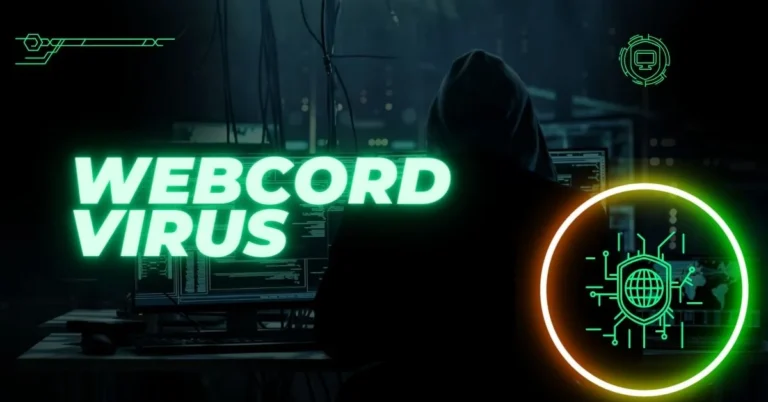Cyber Security Career Paths: A Guide for Aspiring Professionals
Cyber security is a critical safeguard against evolving threats in today’s interconnected digital world. Cyberattacks, ranging from data breaches to ransomware, pose significant risks to individuals, businesses, and governments. Thus, the demand for skilled cybersecurity professionals, such as cybersecurity analysts, ethical hackers, security engineers, and incident responders, continues to soar.
In this context, the article presented serves as a comprehensive guide for aspiring professionals looking to embark on a career in it. It explores various career paths, essential skills and competencies, and educational opportunities, like a masters degree in cyber security, which can help readers gain valuable insights into the dynamic and highly rewarding field of cyber security.
Understanding Cyber Security
Cyber security is concerned with protecting digital systems, networks, and data from malicious attacks, unauthorised access, and other cyber threats. In today’s interconnected world, where organisations rely heavily on technology, cyber security plays a crucial role in safeguarding sensitive information and maintaining the integrity of systems.
Understanding the scope of cyber security involves recognising the evolving nature of cyber threats, which range from malware and phishing attacks to sophisticated hacking techniques like ransomware and DDoS attacks.
Cyber security professionals identify vulnerabilities, implement defensive measures, and respond to incidents to mitigate risks and protect assets. With industries’ increasing dependence on digital infrastructure, the demand for skilled cybersecurity professionals continues to grow, making it a dynamic and rewarding field for aspiring professionals to explore.
Critical Skills Required in Cyber Security Professionals
In the dynamic and rapidly evolving field of cybersecurity, possessing the right blend of technical and soft skills is paramount for cybersecurity professionals.
Technical Skills
- Proficiency in Programming Languages: A solid foundation in languages like Python, Java, C/C++, and scripting languages is essential for automation, tool development, and analysing security vulnerabilities.
- Knowledge of Network Security Protocols: Understanding protocols such as TCP/IP, DNS, HTTP, and SSL/TLS is crucial for securing network infrastructures and detecting suspicious activities.
- Understanding of Operating Systems and Databases: Familiarity with operating systems (e.g., Windows, Linux) and databases (e.g., MySQL, MongoDB) enables cyber security professionals to assess and fortify system defences effectively.
Soft Skills
- Analytical Thinking and Problem-Solving: Cybersecurity professionals must possess strong analytical skills to dissect complex security issues, identify threats, and formulate effective solutions.
- Communication and Teamwork: The ability to communicate technical concepts clearly and collaborate with cross-functional teams is vital for addressing security challenges and implementing cohesive strategies.
- Adaptability and Continuous Learning: Given the ever-changing nature of cyber threats, professionals must stay adaptable, embrace new technologies, and engage in lifelong learning to avoid emerging risks.
Cyber Security Career Paths
There is a diverse range of career paths available for aspiring professionals in it, as indicated below:
- Cyber Security Analyst: it Analysts are crucial in safeguarding organisations from cyber threats. Their responsibilities include monitoring networks for security breaches, analysing security data to identify vulnerabilities, and implementing measures to prevent future attacks. To excel in this role, individuals need strong analytical skills, attention to detail, and proficiency in security tools and technologies. Cyber Security Analysts typically hold bachelor’s or master’s degrees in computer science, cyber security, or related fields.
- Ethical Hacker: Ethical Hackers, also known as Penetration Testers, are responsible for identifying and exploiting vulnerabilities in systems and applications to strengthen cyber defences. They simulate cyber attacks to assess the security posture of organisations and provide recommendations for improvement. Ethical Hackers need in-depth knowledge of networking, programming, security concepts, problem-solving skills, and creativity.
- Security Engineer: Security Engineers design, implement, and maintain security solutions to protect organisations’ infrastructure, applications, and data. They work closely with other IT teams to integrate security controls and ensure compliance with industry regulations. Security Engineers require expertise in encryption, firewalls, intrusion detection systems, and vulnerability management tools.
- Incident Responder: Incident Responders are frontline defenders tasked with rapidly detecting, analysing, and mitigating security incidents and breaches. They conduct forensic investigations, coordinate incident response efforts, and develop strategies to prevent future incidents. Incident Responders need strong technical skills in incident handling, digital forensics, malware analysis, and the ability to work under pressure and communicate effectively.
Tips for Getting Started
- Gain Practical Experience: Indulge in internships, participate in cyber security projects, or engage in Capture The Flag (CTF) competitions to gain hands-on experience and apply theoretical knowledge in real-world scenarios. Practical experience not only enhances skills but also demonstrates competence to potential employers.
- Network Actively: Connect with professionals in the cyber security field through industry events, online forums, and social media platforms. Building a network can provide valuable insights, mentorship opportunities, and potential job leads. Joining cyber security communities and attending meetups or conferences can foster meaningful connections and expand your knowledge base.
- Stay Updated: it is a rapidly evolving field, with new threats and technologies constantly emerging. Continuous learning is the key to staying abreast of the latest trends, tools, and best practices. Follow reputable blogs, attend webinars, and enrol in online courses to stay informed and adapt to evolving challenges.
- Pursue Professional Courses: Consider obtaining industry-recognised certifications or degree courses, like masters in cyber security, that can help enhance your skill sets and marketability. Master’s programs focus on a specific area of cyber security, which allows learners to gain advanced expertise in topics like network security, digital forensics, or cyber threat intelligence. Furthermore, it opens doors to higher-level positions, as many employers prefer candidates with advanced degrees for leadership, management, or research roles in cyber security.
Summing Up…
With the increase in digitalisation, cyber threats have become common challenges for business organisations operating in different industries, which has enhanced the significance of cyber security professionals. Individuals interested in developing a career in cyber security can choose from a wide range of professional job roles, including cyber security analyst, ethical hacker, security engineer, and incident responder.
By following the tips outlined in this guide—gaining practical experience, networking, staying updated, and pursuing professional courses, like a master’s degree in cyber security—individuals can embark on a fulfilling journey towards a career in it.







